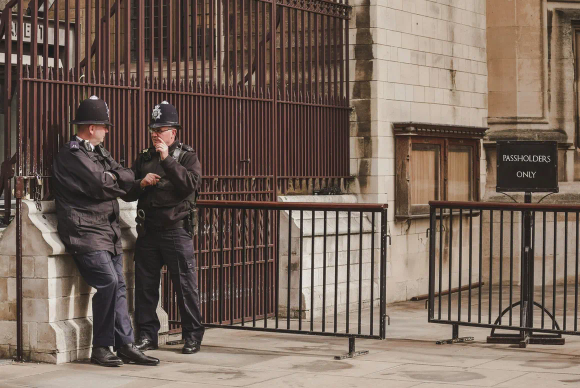We’ve helped a lot of people facing possession with intent to supply. Here are some of the commonly asked questions we’ve seen over the years:
What is the sentence for possession with intent to supply?
Sentences for possession with intent to supply depend on the class of drug involved and any aggravating factors. For Class A drugs like cocaine or heroin, the maximum penalty can be life imprisonment and an unlimited fine. For Class B drugs (e.g., cannabis, amphetamines), sentences can go up to 14 years imprisonment and unlimited fines. Class C drugs, such as steroids, carry penalties of up to 14 years as well, but the sentences are generally lower compared to Class A and B cases.
Aggravating factors, such as being part of an organised crime group or involving minors, may lead to harsher sentences. A good solicitor can often negotiate for reduced sentences depending on the circumstances.
How do you prove possession with intent to supply?
To prove possession with intent to supply, the prosecution must establish two elements:
- Possession: The individual had control of the drugs. This can include having them on their person, in their home, or in their vehicle.
- Intent to supply: The prosecution needs to show evidence that the drugs were meant for distribution rather than personal use. This could be proven by factors such as:
- The quantity of drugs exceeding what is considered personal use.
- The presence of drug paraphernalia, such as scales or bags.
- Large sums of cash.
- Text messages or phone records indicating drug deals.
What is possession with intent to supply section 5(3)?
Section 5(3) of the Misuse of Drugs Act 1971 refers to the offence of possession with intent to supply controlled substances. This section makes it illegal to possess drugs with the intention of distributing or supplying them to others. The penalties vary depending on the class of drug involved and can lead to significant fines and imprisonment. It is important to consult a solicitor if charged under this section for tailored legal advice.
Do first-time drug dealers go to jail in the UK?
Yes, even first-time drug dealers can go to jail in the UK if convicted of possession with intent to supply. The severity of the sentence depends on the class of drug, the quantity involved, and any aggravating factors. For Class A drugs, even a first-time offence can lead to significant prison time, typically starting at several years. However, mitigating factors, such as cooperation with law enforcement or personal circumstances, may reduce the sentence.
Is possession with intent to supply duress?
Duress can be a defence in a possession with intent to supply case, but it is difficult to prove. Duress means that the individual was forced or coerced into committing the crime due to threats of harm or violence. To successfully use this defence, the individual must show that they had no reasonable means to escape the situation and were acting to avoid serious harm. If proven, the court may dismiss or reduce the charges.
How long does drug possession stay on your record in the UK?
A conviction for drug possession or possession with intent to supply will typically remain on your criminal record for a long time. For adults, it usually becomes spent after a period of time under the Rehabilitation of Offenders Act 1974. For imprisonment sentences of over 4 years, the conviction never becomes spent, meaning it will remain on your record permanently. This can affect job applications, travel, and other areas of life.
Do drug allegations show up on DBS?
Yes, drug allegations can appear on a Disclosure and Barring Service (DBS) check, depending on the level of check requested. A standard or enhanced DBS check will show unspent convictions and cautions, which includes drug-related offences. If you have a conviction for possession with intent to supply, it will likely appear on a DBS check, especially if the conviction is recent or unspent.
What is the difference between possession and possession with intent to supply?
Possession refers to being found with drugs for personal use, whereas possession with intent to supply means you are suspected of intending to distribute those drugs to others. The difference is typically proven by evidence such as the amount of drugs, drug paraphernalia, or large amounts of cash. Possession with intent to supply carries much harsher penalties than possession for personal use.
Can possession with intent to supply be reduced to simple possession?
Yes, in some cases, possession with intent to supply can be reduced to simple possession. This often happens when a solicitor can successfully argue that the drugs were for personal use, not for distribution. Reducing the charge can lead to significantly lower penalties, such as avoiding imprisonment.
What happens at the police station if I am arrested for possession with intent to supply?
If you are arrested for possession with intent to supply, you will be taken to the police station for questioning. You have the right to remain silent and to have a solicitor present during the interview. It’s crucial to exercise these rights and avoid answering questions until you have legal advice. Any statements made during this time can be used as evidence against you in court.
Can I get bail if I am charged with possession with intent to supply?
Yes, you may be granted bail if you are charged with possession with intent to supply, but this depends on several factors. These include the seriousness of the offence, your criminal history, and the risk of reoffending or fleeing. The court will decide whether to grant bail or keep you in custody until your trial.
How can a solicitor help in possession with intent to supply cases?
A solicitor can help by reviewing the evidence against you, challenging any unlawful searches, and negotiating with the prosecution. They will develop a tailored defence strategy based on the facts of your case. Solicitors also ensure that your rights are protected throughout the legal process, including during police questioning and court appearances.
What happens if I plead guilty to possession with intent to supply?
If you plead guilty, the court will proceed to sentencing based on the facts of your case. Pleading guilty can sometimes result in a reduced sentence, as it shows cooperation with the court. However, this depends on the drug class, quantity, and any aggravating factors involved. It's important to get legal advice before making a plea.
Can a possession with intent to supply charge affect my immigration status?
Yes, a conviction for possession with intent to supply can have serious consequences on your immigration status. Drug-related convictions can lead to deportation or refusal of future visa applications, depending on the severity of the offence and the country's immigration laws. Legal advice is crucial if you are concerned about the impact on your immigration status.
What happens if I am found not guilty of possession with intent to supply?
If you are found not guilty, you will be acquitted, and the charges will be dismissed. This means no criminal conviction will appear on your record, and you won’t face penalties such as imprisonment or fines. However, the process leading up to this can be long and stressful, so it’s vital to have strong legal representation throughout.





